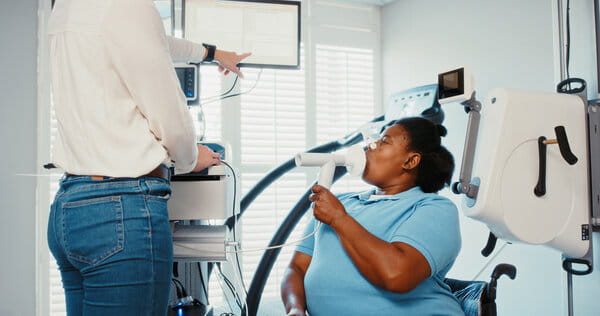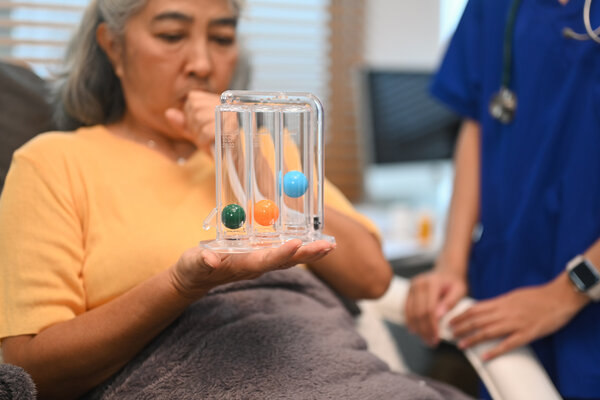What is Spirometry?
Spirometry is a simple, noninvasive breathing test that measures how well your lungs are functioning. It evaluates how much air you can inhale and exhale, and how quickly you can do so. This test is commonly included in pulmonary function testing used to diagnose and monitor conditions that affect breathing, such as asthma, chronic obstructive pulmonary disease (COPD), and other respiratory disorders.
Depending on the specific test, spirometry can be done with a handheld device (such as in a doctor’s office) or connected to a computer with special devices attached.

Is Incentive Spirometry the Same Thing?
An incentive spirometer is commonly used after surgery or for patients with lung conditions to encourage slow, deep breaths and improve lung function. These are usually simple devices where the patient blows into a plastic tube to try and raise a measure or small speres. Incentive spirometry isn’t a diagnostic test. It is a simple form of respiratory therapy.

Why Is Spirometry Testing Done?
Doctors use spirometry for a variety of reasons, including:
- Diagnosing lung diseases such as asthma, COPD, and pulmonary fibrosis
- Monitoring lung function in people with chronic respiratory conditions
- Measuring the effect of medications and treatment
- Assessing lung function before surgery
- Evaluating symptoms such as chronic cough, wheezing, or shortness of breath






